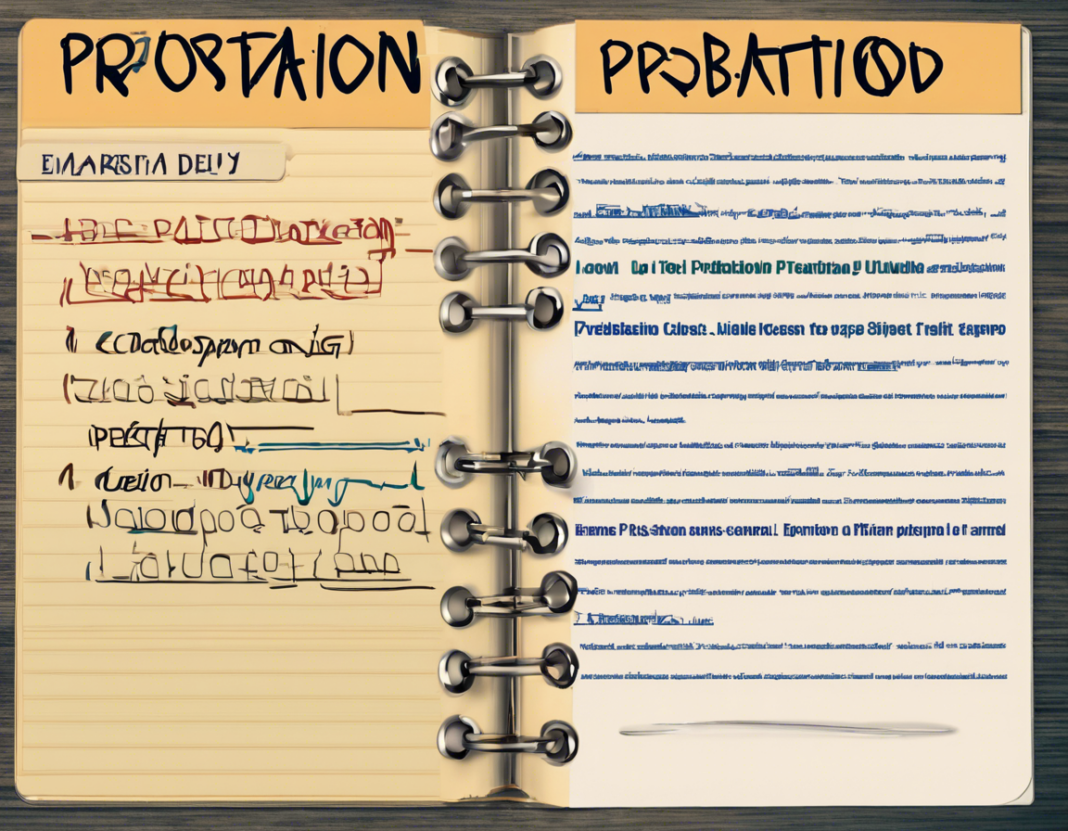Introduction
The Concept of Probation Period in Employment
In the world of employment, the probation period is a common practice that serves as a trial period for employers and employees alike. During this time, new employees are assessed on their performance, suitability for the job, and overall fit within the organization. The probation period typically lasts for a specified duration, which can vary based on the company’s policies and the nature of the role.
Purpose of Probation Period
The primary objective of the probation period is to allow employers to evaluate the new employee’s capabilities, skills, work ethic, and interpersonal skills in a real-life work environment. It also provides an opportunity for the employee to assess whether the job meets their expectations and aligns with their career goals. Ultimately, this period aims to determine if the employee is the right fit for the role and the organization.
Key Aspects of a Probation Period
-
Duration: The duration of a probation period can vary, with common lengths ranging from 30 to 90 days. Some positions may have longer probation periods based on the complexity of the role.
-
Expectations: Employers typically set clear expectations and objectives for the probationary period, outlining what the employee is expected to achieve during this time. These expectations often include key performance indicators (KPIs) and specific goals.
-
Feedback and Evaluation: Regular feedback sessions and performance evaluations are essential during the probation period. This feedback allows both parties to address any issues, provide guidance, and make necessary adjustments to ensure a successful transition.
-
Training and Support: Employers may offer additional training, mentoring, or support to help the employee succeed during the probation period. This can include on-the-job training, access to resources, or coaching sessions.
-
Termination: If the employee fails to meet the expectations or standards set during the probation period, the employer reserves the right to terminate the employment. It is crucial for employers to follow legal regulations and internal policies when terminating an employee during probation.
Benefits of a Probation Period
-
Risk Mitigation: Hiring a new employee is an investment for any organization, and a probation period allows employers to assess the employee’s performance before making a long-term commitment. This helps mitigate the risk of hiring the wrong candidate.
-
Performance Improvement: For employees, the probation period can serve as a learning opportunity to improve their skills, understand the company culture, and align with the job requirements. Constructive feedback and support can help employees enhance their performance.
-
Cultural Fit: Cultural fit is essential for both the employee and the organization. The probation period enables both parties to evaluate whether the company’s values, work environment, and expectations align with the employee’s values and goals.
-
Legal Compliance: Probation periods can provide legal protection for employers by clearly stating the terms of employment, including the right to terminate if the employee does not meet the required standards. This can help avoid potential legal disputes in the future.
Challenges and Considerations
While probation periods offer various benefits, there are also challenges and considerations that both employers and employees need to be aware of:
-
Setting Realistic Expectations: It is essential for employers to set realistic expectations during the probation period, ensuring that the goals and objectives are achievable within the given timeframe.
-
Communication: Effective communication is key during the probation period. Employers should provide clear feedback, guidance, and support, while employees should communicate any challenges or concerns they may face.
-
Legal Compliance: Employers must adhere to relevant employment laws and regulations when implementing a probation period. It is crucial to document the terms of probation in writing to avoid misunderstandings or legal issues.
-
Employee Support: Employees should take advantage of the probation period to seek clarification, ask questions, and request additional support if needed. It is a valuable opportunity to learn and grow within the organization.
FAQs (Frequently Asked Questions)
- What is the purpose of a probation period in employment?
The probation period serves as a trial period for both employers and employees to assess each other’s suitability, performance, and fit within the organization.
- Can the probation period be extended?
Yes, in some cases, the probation period can be extended if both parties agree to do so. However, it is essential to communicate any extensions clearly.
- Can an employee be terminated during the probation period?
Yes, employers have the right to terminate an employee during the probation period if the employee fails to meet the set expectations or standards.
- Are probationary employees entitled to benefits?
Employees on probation may be entitled to certain benefits as per the company’s policies and local regulations. It is advisable to clarify this with the HR department.
- What happens after the probation period ends?
After the probation period ends, employers typically conduct a final review to determine if the employee meets the required standards. If successful, the employee transitions to permanent employment status.
In conclusion, the probation period in employment plays a crucial role in the recruitment and onboarding process, allowing both employers and employees to make informed decisions about their future together. By setting clear expectations, providing support and feedback, and maintaining open communication, organizations can maximize the benefits of the probationary period and set the stage for long-term success.

